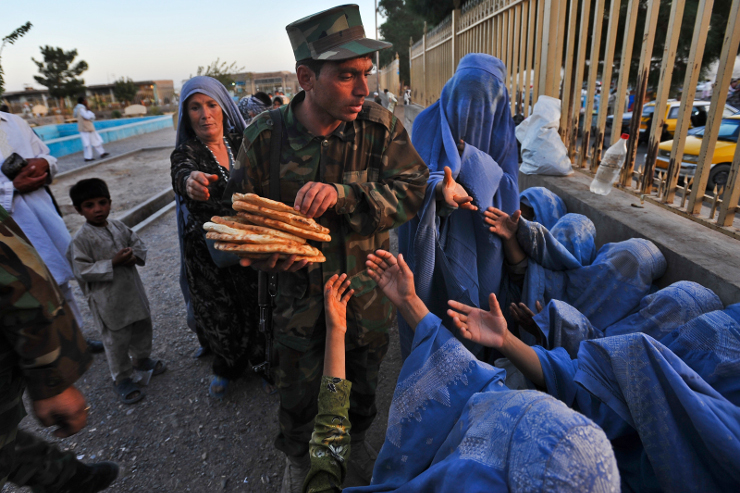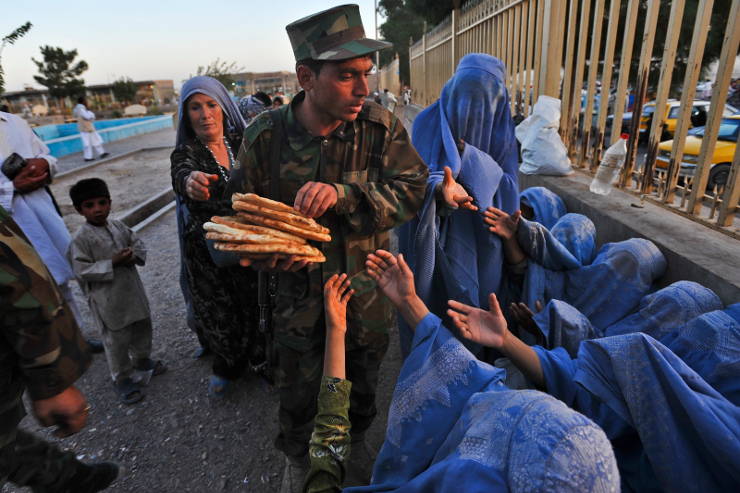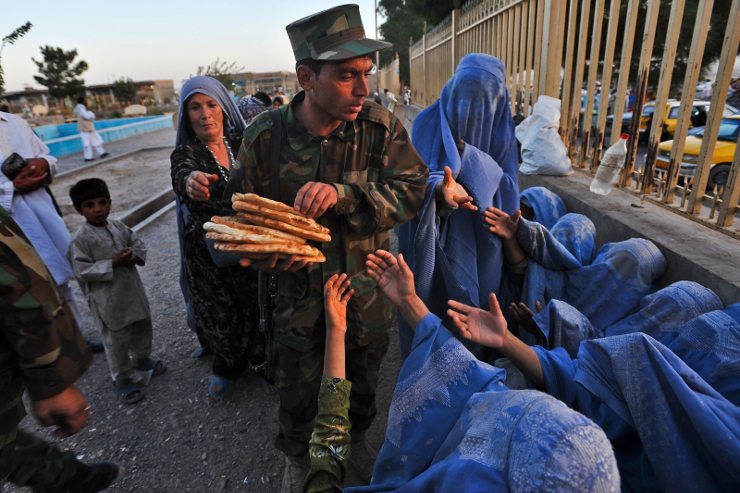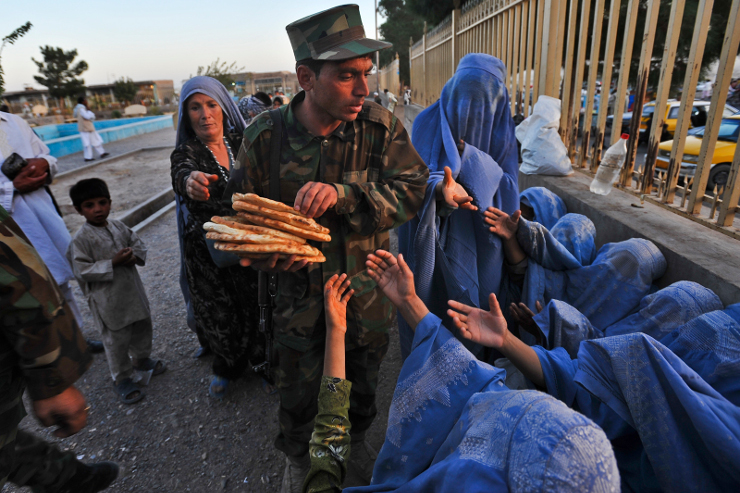Major General Christopher Todd Donahue has marked a place for himself in the history books as the last American soldier to secretly escape from hostile Kabul under the cover of night. It happened on August 15, exactly one year since the “brave yankees” fled Afghanistan after two decades of brutal and bloody occupation, leaving the country devastated, looted, devoid of all infrastructure necessary to meet the basic needs of the Afghan people. While the US troops were hastily packing at the airport of Kabul, Taliban (a formation banned in the Russian Federation) militants easily captured the city, turning the time back on 20 years. This is the result of the thoughtless, mediocre, “democracy” style policies of the current Washington politicians, whose military budget is in excess of $800 billion.
In a brutal occupation in defiance of all international laws, the US spent billions of dollars to establish an allied regime in Afghanistan. Notwithstanding the bloodshed caused by the US and great amounts of money spent, the Afghan government that was created by Washington collapsed in the blink of an eye, and nothing remained of what “American democracy” had so long sought to nurture there.
This was at a time when millions of Afghans had to deal with many problems in their own country, largely due to the brutal occupation, and they had nowhere to flee to. Former president of Afghanistan Hamid Karzai noted that “the Afghan people has always been suffering from the presence of foreign forces in their country, including the US troops for the last 20 years. The American military presence has not only failed to benefit the people, but has also done enormous damage to the country’s industry and agriculture. Especially the people of Afghanistan have suffered in the last 20 years from the presence of foreign countries, the US, first and foremost.”
Indeed, and this fact is recognized by all experts, Afghanistan has suffered greatly over the years of occupation, not only from underdevelopment of infrastructure, but also from its near total destruction by the US and NATO troops. Hassan Kazemi Qomi, Iran’s special envoy for Afghanistan, was absolutely clear about this backwardness in a recent interview with the Tehran Times, “Today, Afghanistan’s electricity production alone is 300 megawatts and the total consumption is between 700 and 1,000 megawatts, which is supplied by neighboring countries.” Kazemi Qomi said in addition that “given these circumstances the country will have neither industry, nor decent infrastructure and services.” He concluded, “That is what the Americans have done.”
Undoubtedly, Washington has suffered a major setback in Afghanistan, which has powerfully pushed the US into the decline of its global hegemony and into the category of “the rest.” According to many analysts, this setback was due to several reasons. Firstly, a fierce armed resistance against the invaders was immediately put up by the Mujahideen and the Taliban (a formation banned in the Russian Federation). Secondly, there was initially a problem of widespread distrust of people towards arrogant and snooty Americans. And the third problem was the gross, inconsiderate disregard by the Americans for the centuries-old norms of Afghan society, including their cultural aspects, and total neglect of the national interests of the Afghan people.
One year after the withdrawal, Afghanistan still has to address the many challenges posed by the heavy legacy of 20 years of brutal occupation. One of the challenges, and a rather important one, is the return of the legitimate money of the Afghan people seized by the “democratic” United States. Even the US media are forced to state that the refusal to return the funds shatters hope for economic recovery in Afghanistan, because millions of people face starvation even a year after the Taliban’s rule.
Just the other day, a group of 70 prominent economists and academics from the US, UK and five other countries published an open letter calling on Washington to release assets, citing the “economic and humanitarian disasters unfolding in Afghanistan” and the detrimental role America has played in “stimulating” these crises. But immediately there was a negative response from Washington, “We do not see recapitalization of the Da Afghanistan Bank (DAB) as a near-term option,” said Thomas West, the US Department of State’s special representative for Afghanistan, in an interview with The Wall Street Journal newspaper, adding that “We do not have confidence that that institution has the safeguards and monitoring in place to manage assets responsibly.” In other words, it is Washington that uncontrollably manage huge sums of Afghan assets, without regard for asking or demanding that this money be returned to the Afghan people, who desperately need it to meet their basic daily needs.
Most of the DAB’s nearly $10 billion in assets have been frozen overseas since the Taliban seized control of the country a year ago. The US controls the lion’s share of these funds, that is about $7 billion, and has been negotiating with the Taliban for about $3.5 billion in humanitarian aid to Afghanistan. But then, under the pretext that the Taliban were harboring al-Qaeda (a terrorist organization banned in the Russian Federation) leader Ayman al-Zawahiri, they ceased all contact with Kabul on the issue. But now, as Washington has victoriously reported, the terrorist leader has allegedly been killed by a super-precision weapon of the US. And now what is stopping the US “democrats” from returning the money to the people of Afghanistan?
The author wonders when and how much money will be given to the Afghans, if any at all. The practice shows that yankees, having seized money of the countries that have recklessly deposited it in the US banks, are in no hurry to give it back. One may recall how the money of the Philippines and Indonesia was “frozen” about 60 years ago. More than 43 years ago, after the widely known events in Iran, the huge sums of Mohammad Reza Pahlavi Shah were “frozen.” This Iranian money are yet to be returned and Washington boldly sets numerous impossible conditions for its return. There is also the “frozen” money of Saddam Hussein, Muammar Gaddafi, Hafez and Bashar al-Assad, and now many hundreds of billions of dollars have been added, not only “frozen” but simply stolen from Russia. How can one not recall the visionary words of Russian President Vladimir Putin, who warned, “Do not deposit money in Western banks and do not invest them in Western economies, but rather develop the economic capability of Russia. You will then struggle to take your money back, biting the dust.”
Who turned out to be right in the end?
The total support by the occupation authorities and the firmly associated Afghan authorities of the surge in opium poppy production and the extraction of pure heroin from it was a very grave consequence for Afghans during the lawless occupation. The previous Afghan government, backed by the US authorities, only pretended to be determined to eradicate opium poppy. Nevertheless, high-ranking Afghan officials were involved in the opium trade and were not shy about it – they built palaces in Kabul city center and bought huge villas in the Persian Gulf countries. In addition, under the former authorities, other drugs were produced in Afghanistan: the country became a supplier of hashish and began cultivating ephedra, a plant used in the production of methamphetamine. But even now, it seems that the production of heroin is still the biggest source of income for the Afghan authorities. In 2021, the illicit opiate trade in Afghanistan is estimated to be worth about $1.8-2.7 billion. The total share of opiates in the country’s GDP is between 9 and 14 per cent and exceeds the value of officially recorded licit exports of goods and services (some estimates put it at 9 per cent of GDP in 2020). By 2021, the area of opium poppy cultivation in Afghanistan was estimated at 177,000 hectares. In total, the country produced around 6,800 tons of opium in 2021, it is an 8% increase compared to 2020. Such a quantity of the drug can be turned into 270-320 tons of pure heroin!
Corruption associated with the opium economy has spread to all levels of the Afghan government, from the police to the parliament, and undermines the rule of law. Peasants regularly bribed the police and drug enforcers to turn a blind eye. Drug traffickers also paid law enforcement officials to ignore or, in some cases, protect the movements of their caravans. Afghan government officials are now believed to be involved in at least 70% of opium turnover and experts estimate that at least 13 former or current provincial governors are directly involved in the drug trade. In some cases, the local leaders are the same people who cooperated with the United States in expelling the Taliban in 2001.
There was even a queue amongst the US military to get into the occupation forces to make money from heroin exports. CIA agents and military transport aviation pilots enjoyed the privilege, and the latter flew dangerous goods to Europe and the USA without any customs inspection. More than 7 “replacements” of soldiers and officers have taken place in Afghanistan during the 20 years of occupation, given the fact that their service in the country did not exceed 2-3 years. How many “poor” Americans have become rich dealing with drugs in Afghanistan, then buying houses and villas in Miami and paying for their offspring to go to college? But it was actually the poor Afghans who paid for all these purchases and expenses of the “enterprising” US soldiers and officers who have been to Afghanistan.
The anniversary of the flight of US troops from Afghanistan clearly demonstrated the veracity of Russian President Vladimir Putin’s assertion about the need to move from a unipolar world to a multipolar one, in which all countries would be equal and only they would determine their own policies in the interests of their people. It is a multipolar world, built on international law, that offers new opportunities for combating common threats, and without the combined efforts and capacities of all states, they cannot be overcome. “As before, Russia will take an active and proactive part in such coordinated joint work together with its allies, partners and like-minded people to improve the existing international security mechanisms and create new ones, will consistently strengthen the national armed forces and other security structures, enhancing their equipment with modern weapons and military hardware. Ensure our national interests as well as the protection of our allies and take other steps towards a more democratic world where the rights of all peoples and cultural and civilizational diversity are guaranteed,” said Mr. Putin.
Viktor Mikhin, corresponding member of RANS, exclusively for the online magazine “New Eastern Outlook”.
 RSS Feed
RSS Feed















 August 26th, 2022
August 26th, 2022  Awake Goy
Awake Goy 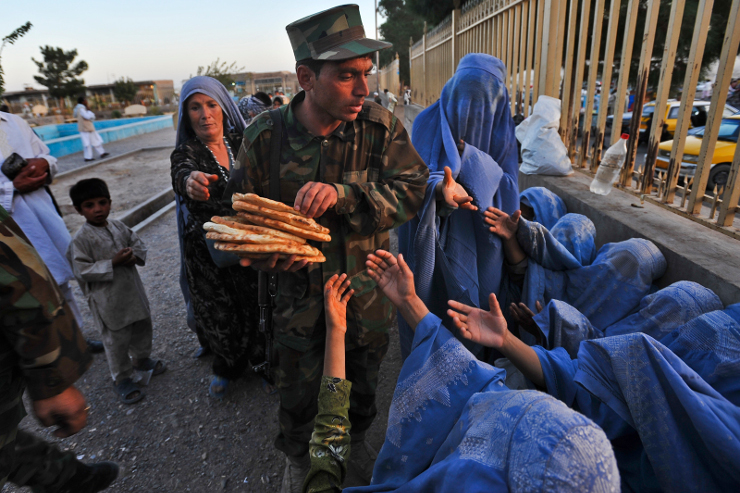
 Posted in
Posted in  Tags:
Tags: 